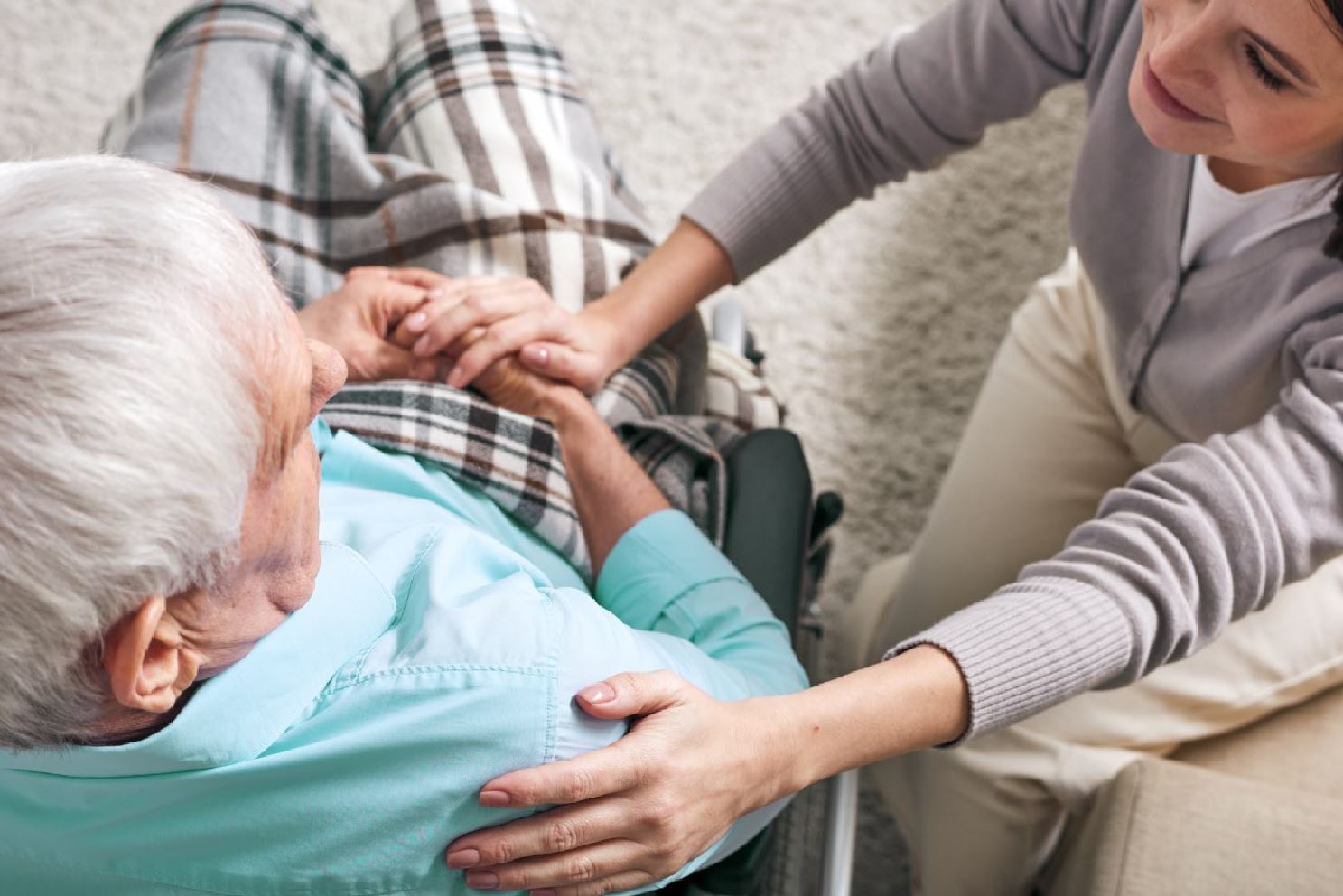The important partnership: caregivers and care professionals
Every patient deserves professional and customized care during the time they’re with Centrica Care Navigators. Our team is committed to providing compassionate care, education, and confidence in each person we partner with, but we can’t be everywhere all the time.
That’s one reason the Plans of Care that are developed whenever someone begins service include information for caregivers, family, and friends of the patient who are willing and able to provide care when it is needed.
It can be difficult, though, to know what’s appropriate for you to do for your loved one in hospice care, since you’re probably not a trained hospice professional. Talking with a registered nurse, physician, or hospice aide can help clarify things. They’re experienced with the best ways to help manage a patient’s pain and conditions related to their illness. They can also answer questions and help family members and friends — the caregivers for a patient — understand what they can do for the patient.
Every patient’s situation is different, but there are some steps that many caregivers can take to help a patient have a less-stressful, more comfortable experience in hospice care.
You can find even more helpful tips in our e-guides available on our website.
Home safety
Patients may become much weaker as their disease progresses, and they will often need more assistance from others as they move around in their home, to help avoid falls. Some patients are so weak they may stay in bed the majority of their day.
- If you’re moving someone from laying in bed to sitting and then standing, take your time, and move slowly and gently. Lock the wheels on their bed or wheelchair in place before making a move.
- Here’s a recommendation that’s helpful for both you and your loved one: keep the floor clear of hazards. You don’t want anyone to trip over the edge of a rug or bump into a piece of furniture.
- Protect the house and everyone in it. Keep smoke and carbon monoxide detectors active and up to date — it’s the beginning of the year right now, a great time to review your alarms.
Breathing
It can be scary when someone you care about is having difficulty breathing. Your Centrica Care Navigators team can help explain how a patient’s breathing may change over time, and what you can do to make them comfortable.
- These options may include opening a window if the weather permits or using a fan to encourage air circulation.
- Sometimes, the position of a patient’s head and neck can also affect breathing. Shifting the person so they are sitting more upright in bed, sometimes with the use of pillows, can make breathing easier.
Nausea and vomiting
People receiving end-of-life care may feel sick to their stomach and often have much less of an appetite or lack the desire to eat. There are a few simple actions you can take to help them feel more comfortable.
- Provide bland food like crackers or bread. Note that the old BRAT diet (bananas, rice, applesauce, toast) used for decades with ill children is no longer recommended by experts.
- Drink water and clear liquid — keep your loved one hydrated. If they have trouble swallowing, try putting small ice chips in their mouth to melt.
- Food isn’t the only way to help someone feeling nauseous; providing a quiet, calm place for them to rest will aid in recovery too.
Nutrition
While it’s important for a patient to have appropriate types of food when they’re feeling nauseous, their body needs energy as well.
- Liquid foods like nutritional shakes and soups can be an easier-to-swallow food option.
- As the body changes during the end-of-life period, the patient’s tolerance for food can change too. They may stop enjoying foods they used to like or be easily upset by cooking smells.
- Remember that forcing someone to eat or drink can make them uncomfortable. Not eating very much, or even at all, is part of the dying process.
Pain and symptom management
Your care team will determine the most effective way to help your loved one with their pain. We’ll provide education on medications that are prescribed for pain so you understand their purpose and any side effects to watch for. There is more to pain management than pills, too.
- Try non-medical forms of pain management like listening to soft music, relaxation techniques, or distracting a patient by starting a conversation or an activity they enjoy.
- Look for non-verbal indications that a patient is in pain, and keep in mind that some people won’t say they need help even if they actually do.
Personal care and elimination
After medicine, this might be the first thing you think of when you think about what a patient needs if they can’t take care of themselves — bathing and using the toilet.
- Many people may find it embarrassing to receive help with what seems like basic hygiene care. But you might need to be in the room while the person gets dressed or takes a shower, available to lend a hand if necessary.
- Pay attention to the patient’s urine and bowel movements; that’s a good indicator of overall health. If there’s a change, be sure to let your Centrica Care Navigators care team know.
Skin care
Many of the things you do to keep your own skin clean and soft are also helpful for your loved ones. A patient’s skin may need extra attention, especially if they are bed-bound and don’t have much opportunity to move around.
- Keep skin clean and dry, using appropriate lotions and soap — ask your care team for guidelines.
- If a patient is bed-bound and can’t move on their own, turn them regularly so sores don’t develop.
- Skin needs to be clean and dry, and so do sheets. If a patient wets the bed, try to replace the sheets as soon as possible, and any wet clothes, too.
Emotions/Mental changes
- Patients sometimes are angry or frustrated because, in part, they can no longer do things they once did very easily. If your loved one is upset with you, don’t take it personally, but do acknowledge their reactions.
- Even if they can’t participate in the same way, people in end-of-life care want to be part of what’s happening with friends and family. Keep talking with them, and bringing them to activities (when possible). Your Centrica Care Navigators social worker can give you suggestions on ways to support your loved one’s emotional and mental health.
Find out more about care teams and helping your loved one with quality hospice care here on our website, join us on social media, or call us at 269.345.0273.




